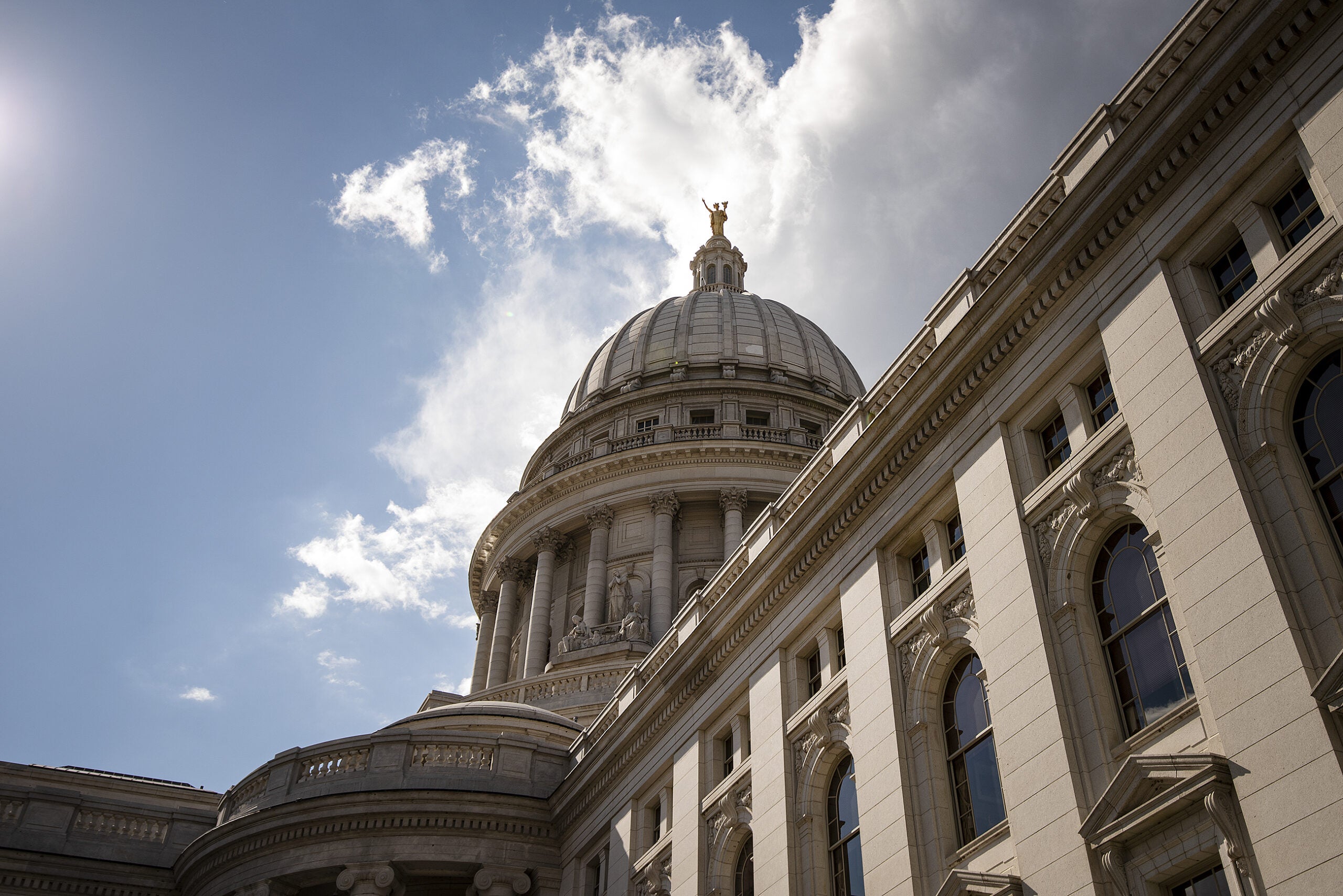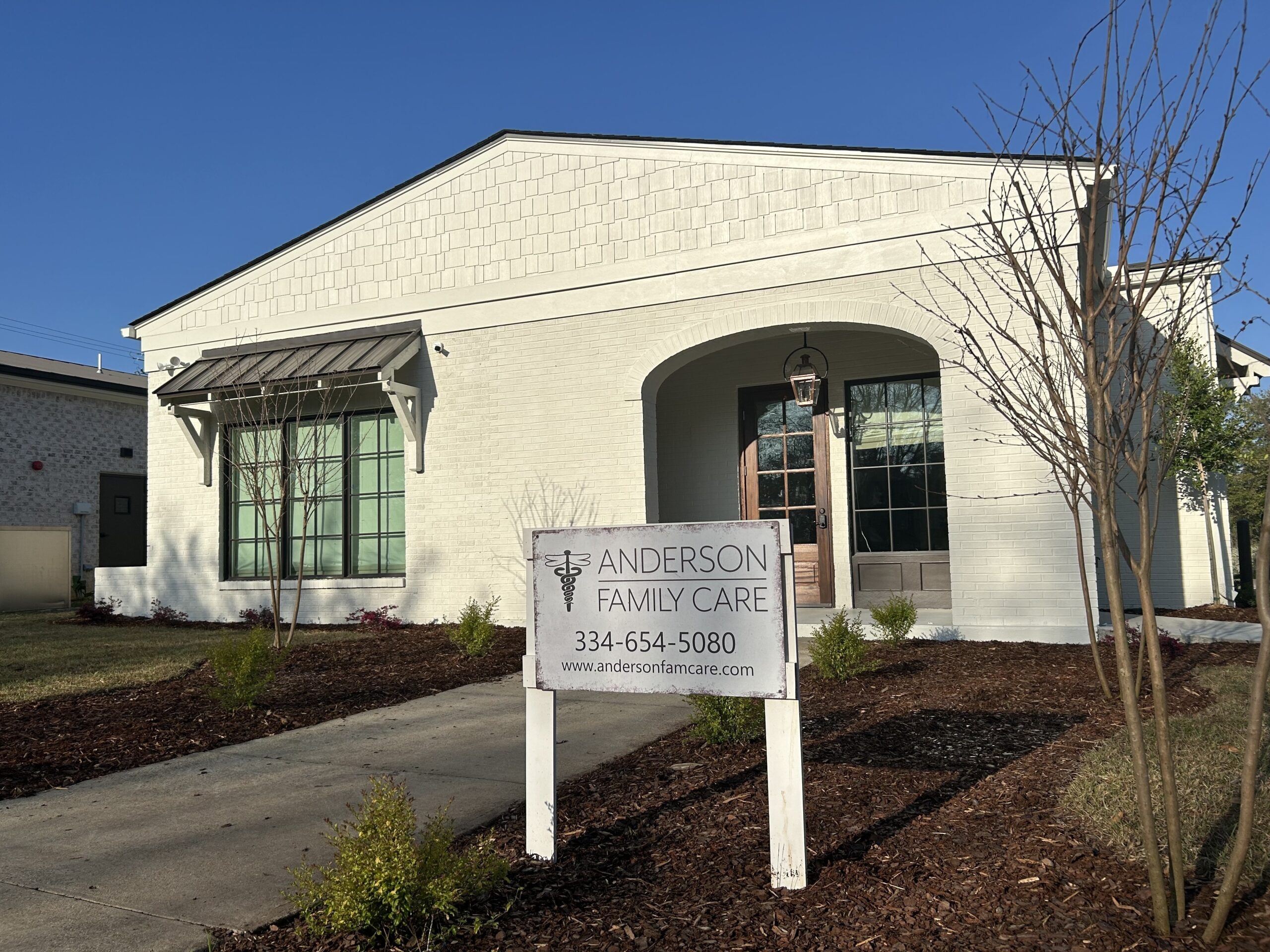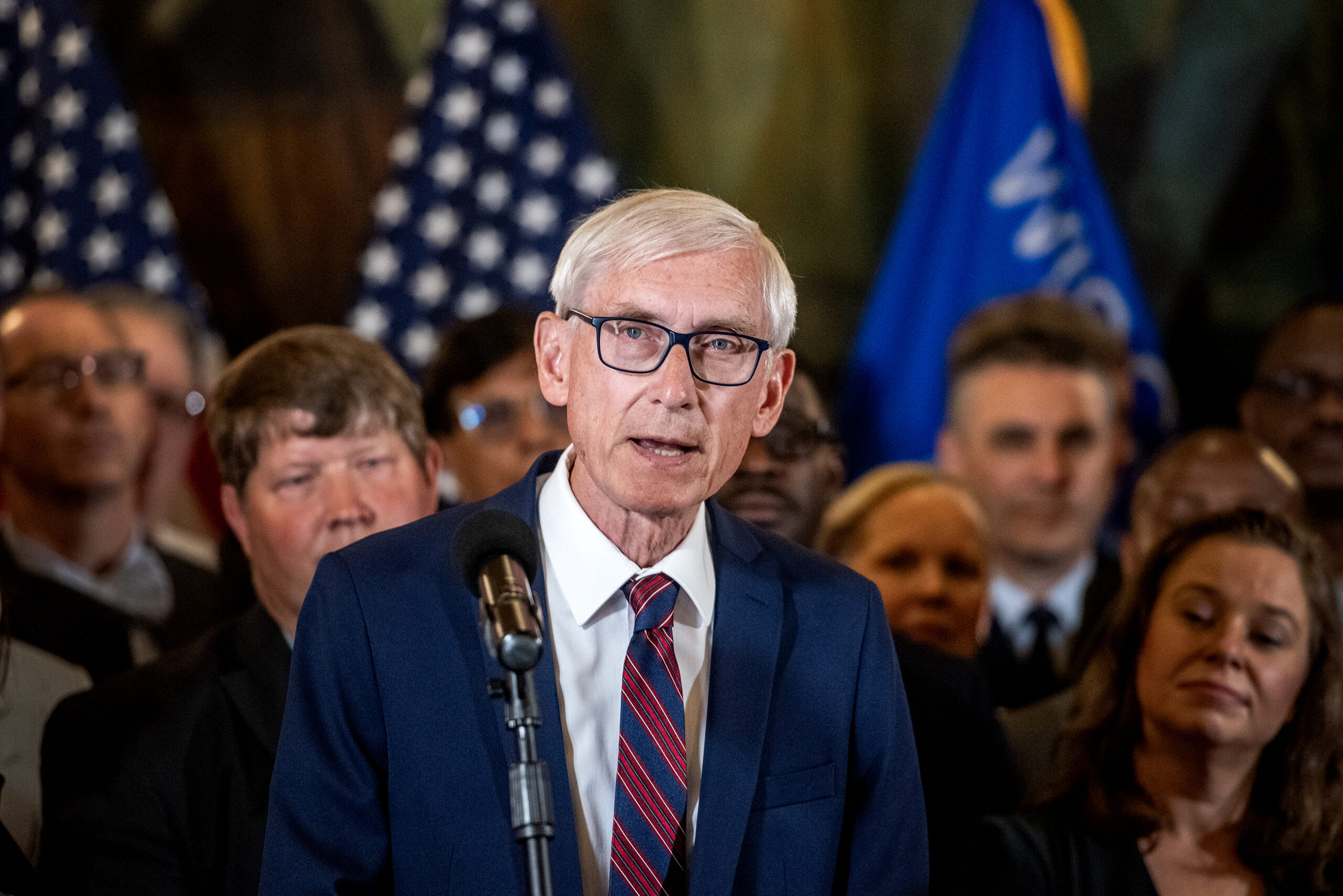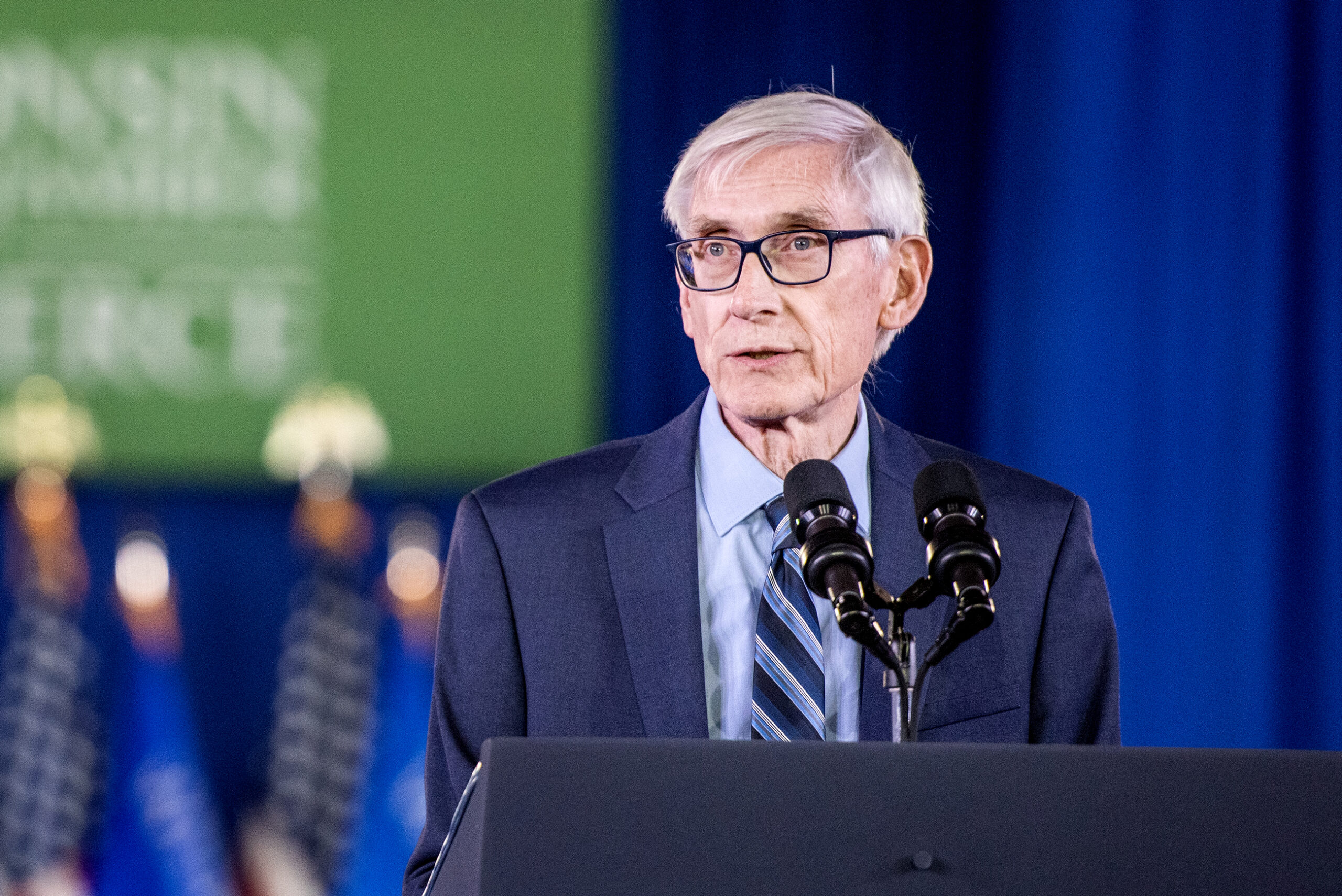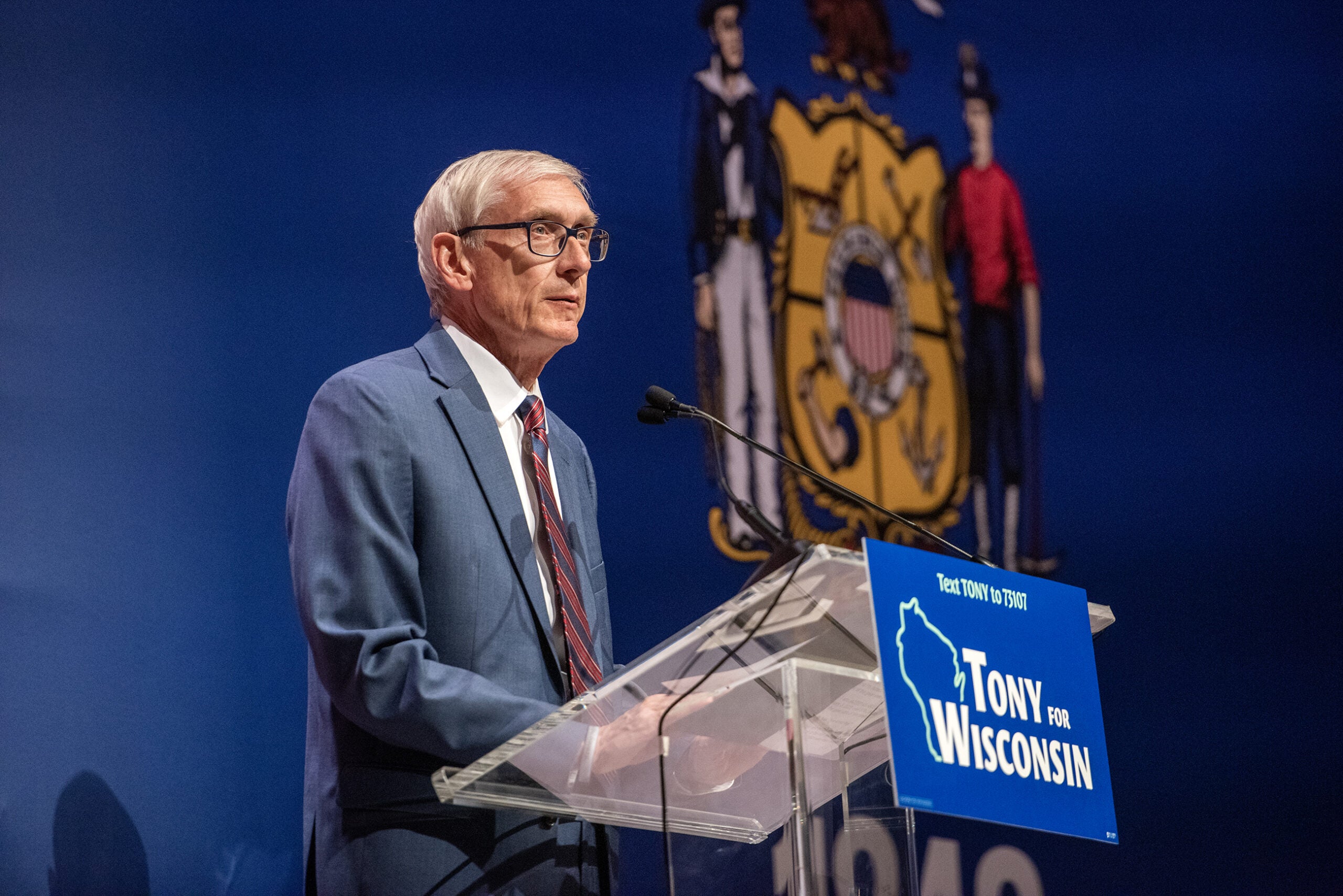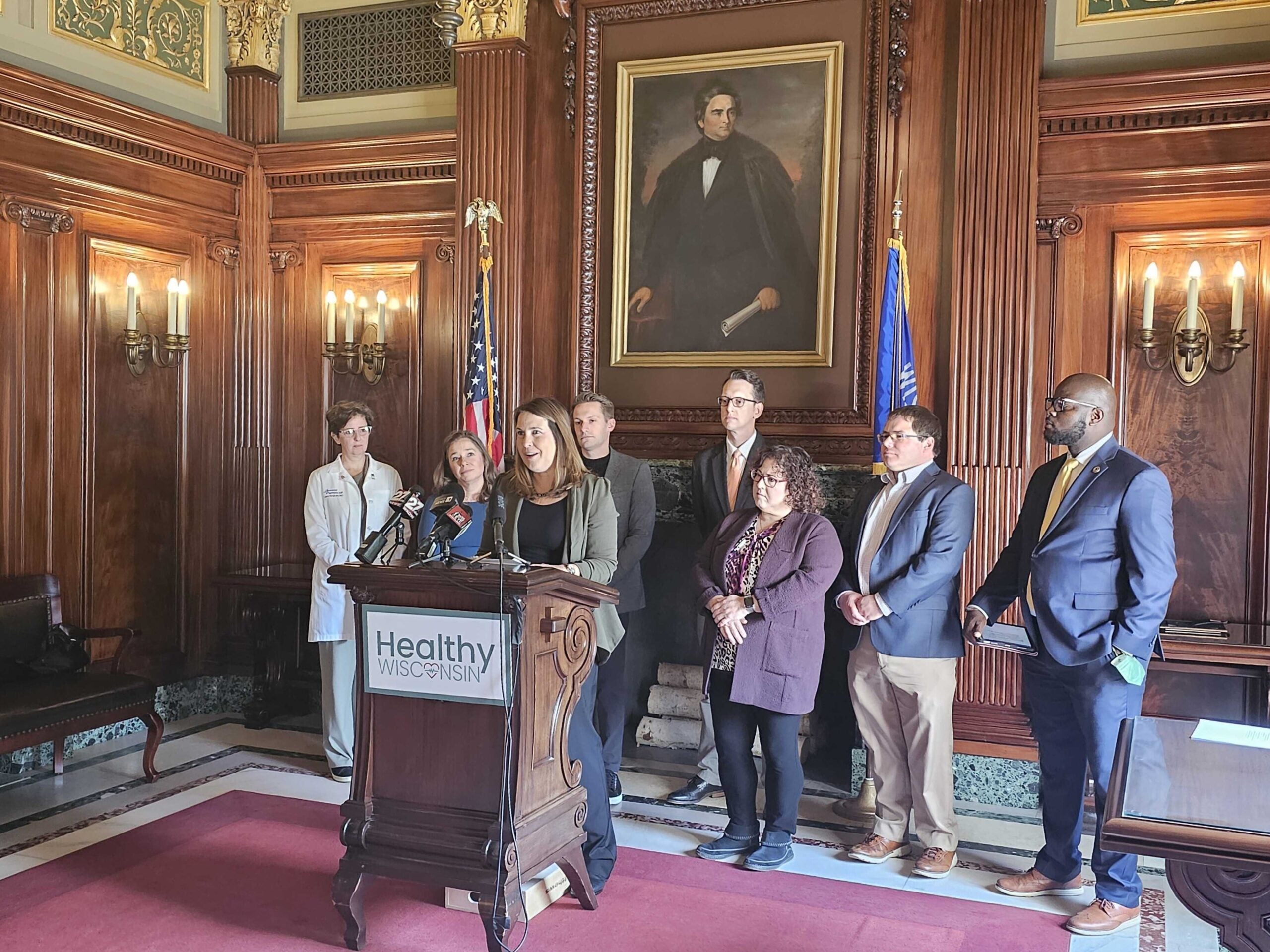Gov. Tony Evers revived his push to expand Medicaid on Wednesday, this time tying it to a plan that would spend $1 billion in federal incentives on projects throughout Wisconsin.
The proposal represented an attempt by the Democratic governor to recast the well-worn debate as about more than just expanding health coverage, framing it instead as a chance to capture a rare federal incentive payment to spend on dozens of projects, some of them in lawmakers’ backyards.
“We’re going to be utilizing it for projects all across the state,” Evers said at a Wednesday press conference in Middleton. “If the Republicans decide not to do this, they’ll be turning away projects in their own districts.”
Stay informed on the latest news
Sign up for WPR’s email newsletter.
But just hours after Evers introduced his plan, several of the Legislature’s top Republicans issued a written statement saying they opposed it.
“Our unique-to-Wisconsin solution is working, and we will not shift tens of thousands of people off their private insurance to a government-run system,” said Assembly Speaker Robin Vos, R-Rochester, and Senate Majority Leader Devin LeMahieu, R-Oostburg.
Wisconsin is one of a dozen states that have decided not to expand Medicaid since the passage of the Affordable Care Act.
Wisconsin offers Medicaid, or BadgerCare, to people who earn up to 100 percent of the federal poverty level. Evers’ proposed budget would have expanded that to 138 percent, which would have covered an estimated 91,000 additional residents. BadgerCare currently covers about 1 million people in Wisconsin.
Republicans on the Legislature’s budget committee rejected the governor’s plan, just as they did two years ago after Evers proposed expanding Medicaid in his 2019 budget.
Both times, the decision meant Wisconsin would miss out on hundreds of millions of dollars in federal funding to offset what the state spends on Medicaid. That was also the case under former Republican Gov. Scott Walker, who dismissed calls from Democratic lawmakers to take the federal expansion when he was in office.
The difference this year is that the federal government offered an additional, one-time incentive to states that have yet to take the expansion. In Wisconsin’s case, that sweetener payment would be about $1 billion.
“If we don’t take it now, I highly doubt that opportunity will ever, ever come again,” said Sen. Jon Erpenbach, D-West Point, one of the Democratic members of the budget committee who joined Evers in Middleton.
“Just saying that we’re not going to do this because Republicans have said we’re not going to do it, and they’ve been saying that forever, is not only morally wrong. Fiscally, it’s really stupid if you think about it,” Erpenbach said. “Who says ‘no’ to a billion dollars?”
The governor’s latest proposal would spend $200 million of the federal Medicaid incentive on broadband expansion grants, $100 million on replacing lead pipes, $100 million on bridge and local road replacement, $50 million to purchase the Verso Paper Mill in Wisconsin Rapids and $15 million for the purchase of the Park Falls Pulp and Paper Mill.
Other projects include $50 million for veteran housing grants, $50 million to address mental health, $11 million for rural emergency medical services, $30 million to expand genome testing at the state hygiene lab, $15 million for the Versiti Blood Research Institute in Milwaukee and $4 million to replace a 69-year-old hospital in Darlington.
Evers would also use about $150 million to make a deposit in Wisconsin’s budget stabilization fund, commonly referred to as the state’s rainy day fund.
The list of proposals from Evers comes shortly after Wisconsin learned that it would receive about $700 million less than expected from the latest federal coronavirus relief package.
“So now there’s even more urgency to do everything we can to ensure our state has the resources it needs to bounce back and our economy to recover from this pandemic,” Evers said.
Evers called on lawmakers to debate the plan in a special session of the Legislature that convenes Tuesday, although the governor can’t force the full Legislature to debate the plan. Evers has used a similar tactic to highlight other priorities, like his plan to address police violence, but GOP leaders have typically gaveled in and gaveled out of the governor’s special sessions without taking action.
Republicans indicated Wednesday that they’d do the same with Evers’ latest plan.
“This is a thinly-veiled political maneuver by the Governor,” said Senate President Chris Kapenga, R-Delafield, and Assembly Majority Leader Jim Steineke, R-Kaukauna, in the same joint statement as Vos and LeMahieu. “We intend to gavel out this unserious stunt.”
Between the $1 billion incentive payment and other federal reimbursements, the decision not to expand Medicaid will cost state government an estimated $1.6 billion overall.
Wisconsin Public Radio, © Copyright 2024, Board of Regents of the University of Wisconsin System and Wisconsin Educational Communications Board.

